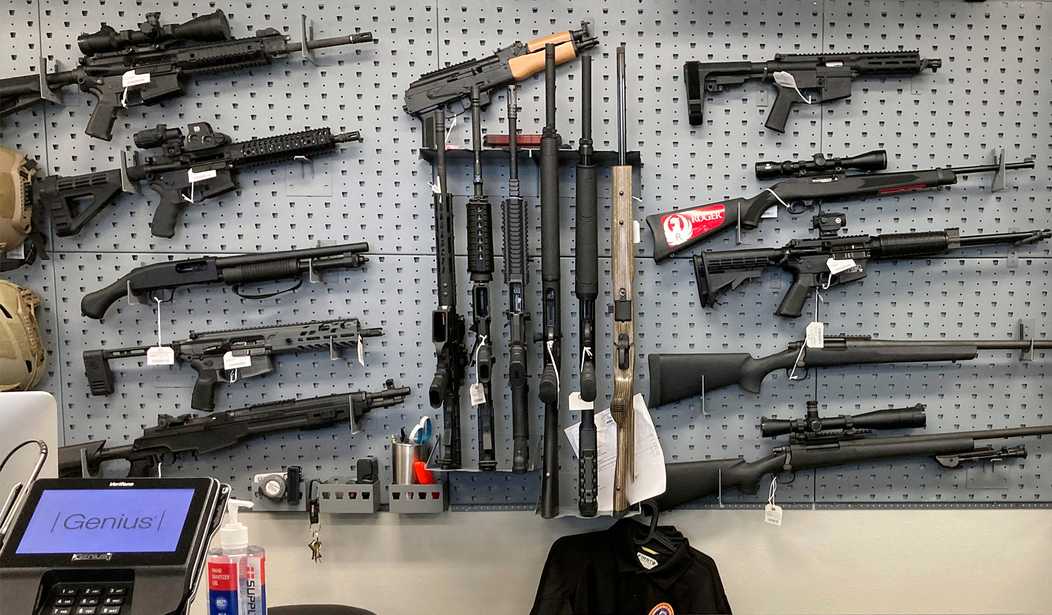Back in 1995, Bryan Range pleaded guilty to fraudulently obtaining $2,458 in food stamps by misrepresenting his income. He returned the money, paid a $100 fine and $288 in court costs and served three years of probation.
Although Range did not realize it, that Pennsylvania misdemeanor conviction also came with a lifelong penalty: He lost his constitutional right to keep and bear arms. His case, which the U.S. Court of Appeals for the 3rd Circuit will hear next month, poses the question of whether that policy, which prohibits gun ownership by millions of Americans with no history of violence, violates the Second Amendment.
Federal law generally makes it a felony to purchase or possess a gun if you have been convicted of a crime punishable by more than a year of incarceration. When a state classifies a crime as a misdemeanor, that disqualification applies if the maximum penalty exceeds two years.
Range's crime was punishable by up to five years in prison, which meant he was no longer allowed to buy or own a firearm. When he tried to buy a deer-hunting rifle in 1998, he failed the background check.
Range figured that must have been a mistake. His wife bought him a rifle, then bought him another after the first one was destroyed in a house fire. Range later tried again to buy a gun but was again turned away, which prompted him to take a closer look at the federal prohibition, which is commonly described as applying to "felons."
After discovering that he was a "prohibited person" even though he had not been convicted of a felony, Range sold his hunting rifle to a gun dealer. But for that law, he says, he would have kept the rifle and might also have bought a shotgun for home defense.
Recommended
Range's initial confusion about his status is not surprising, since the rule he inadvertently violated does not make much sense. Although it is ostensibly aimed at protecting public safety, it does not require any evidence of violent tendencies.
In a Nov. 16 decision that was vacated last week, a 3rd Circuit panel said that policy nevertheless is "consistent with the Nation's historical tradition of firearm regulation" -- the constitutional test that the Supreme Court says gun laws must pass. Surveying the history of status-based gun prohibitions from 17th-century England through ratification of the Second Amendment, the panel perceived a pattern of disarming people "who did not respect the law," whether or not they posed a violent threat.
A brief that the Firearms Policy Coalition submitted on Range's behalf reaches a strikingly different conclusion. "Historically, firearm prohibitions applied to dangerous persons," the brief says. "There is no tradition in American history of banning peaceable citizens from owning firearms."
That take jibes with a 2019 dissent that Supreme Court Justice Amy Coney Barrett wrote as a judge on the U.S. Court of Appeals for the 7th Circuit. "Legislatures have the power to prohibit dangerous people from possessing guns," she said. "But that power extends only to people who are (SET ITAL) dangerous.(END ITAL) "
Barrett thought a felony mail fraud conviction was not enough to justify the permanent loss of Second Amendment rights. If the full 3rd Circuit agrees with Barrett's reasoning after it rehears Range's case, it is apt to conclude that the same goes for his misdemeanor welfare fraud conviction.
Although the Supreme Court has described "prohibitions on the possession of firearms by felons" as "longstanding" and "presumptively lawful," states did not begin imposing such restrictions until after World War I. Even then, the prohibitions were much narrower than the current federal rule, did not necessarily cover all firearms and often allowed for the restoration of gun rights.
The original federal prohibition, enacted in 1938, applied only to specific "crime(s) of violence." That narrower focus, which would allow someone like Range to use guns for hunting and self-defense, is easier to defend than the "wildly overinclusive" ban that rightly troubled Barrett.

























Join the conversation as a VIP Member